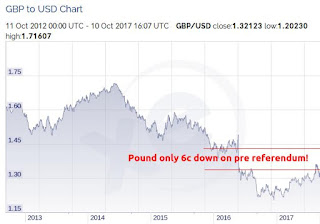International air transport is governed by the International Civil Aviation Authority (ICAO), not the EU. Rights such as overflight, access to Air Traffic Control, access to ground services are governed internationally. The ICAO also governs market access and the EU and UK are committed to providing access to airlines from around the world. The ICAO guarantees the following Freedoms of the Air:
- To fly across the territory of either state without landing.
- To land in either state for non-traffic purposes, e.g., refueling without boarding or disembarking passengers.
- To land in the territory of the first state and disembark passengers coming from the home state of the airline.
- To land in the territory of the first state and board passengers travelling to the home state of the airline.
- To land in the territory of the first state and board passengers travelling on to a third state where the passengers disembark, e.g., a scheduled flight from the United States to France could pick up traffic in the UK and take all to France (sometimes termed beyond rights).
This guarantees that most current UK air services to and from the EU will continue after Brexit without any further agreement.
The EU has a “European Common Aviation Area” which is about creating a single market in aviation within the EU. The most important aspect of this is the ability of any EU country to operate internal flights in other EU countries. In the UK Easy Jet, a British company, is most affected but most other carriers deal with passengers flying to and from the UK and will experience little disruption.
The EU-US Open Skies Agreement extends the five basic freedoms to allowing fairly full and free access to internal airports and routes by US and EU airlines in the EU and US. The US should be amenable to extending Open Skies to a US-UK Agreement. The EU will drag its feet until after Brexit but this will not have a serious effect. This tardy negotiating by the EU before Brexit is another reason for a quick, surgical Brexit so that negotiations can get under way to help UK – and EU – short-haul airlines that operate routes with departures and destinations away from home. RyanAir would be hit hardest by any lack of a deal on Open Skies and the highly vocal Irish CEO of Irish RyanAir, Michael O’Leary, should turn his skills to persuading his own country, the EU, to change rather than badgering the British.
The pre-Brexit IATA Report on the Impact of Brexit on UK Air Transport used Project Fear figures to suggest that a predicted huge fall in GDP (6 to 9.5%!) and large falls in the pound soon after the Referendum would be disastrous for UK Air Transport. Project Fear did not happen and economists no longer predict a Brexit GDP catastrophe and, of course, the pound has almost recovered from a sharp, but relatively small, decline. Apart from re-hashing Project Fear the IATA Report said little about the requirements for regulation after Brexit.
 |
| Pound has largely recovered |
 Daily Globe British Values, Global Perspective
Daily Globe British Values, Global Perspective




Quite right John. The idea that they can close off European airspace is ridiculous – even after the sanctions, Aeroflot was able to fly into Europe, so why wouldn’t we?
And if they were somehow to try to block us out – there are beaches and tourist attractions outside of the EU, too.
Sir,
I am sorry but your article is misleading:
– first of all, ICAO does not regulate market access in air transport. This is done through thousands of bilateral air transport agreements between States. Within the EU, this was replaced by the EU internal air transport market (established by EU Regulations gradually in the 1990s) and the UK was part of it until Brexit.
– the UK and the EU agreed to maintain a liberal market access regime in air transport as part of the trade deal between them so UK airlines have retained access to the EU market and vv.
– the UK and the US have also agreed to maintain free market access for their airlines between them.
So no one is blocking UK airlines.
I also do not see why this has been published now, long after these issue were settled.
Sincerely,